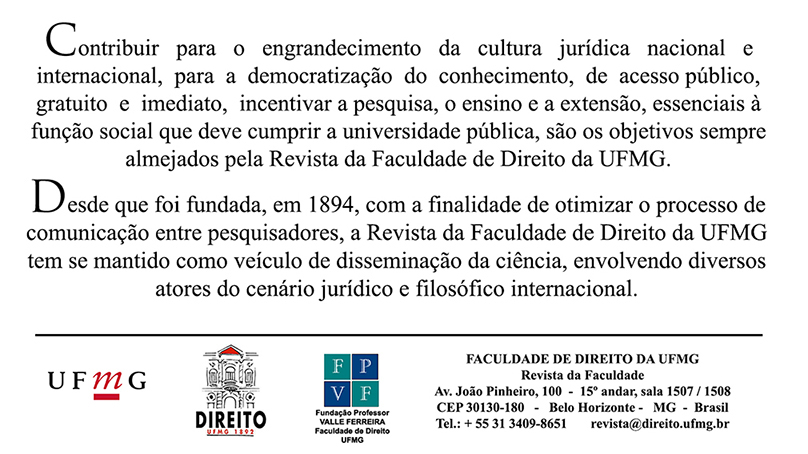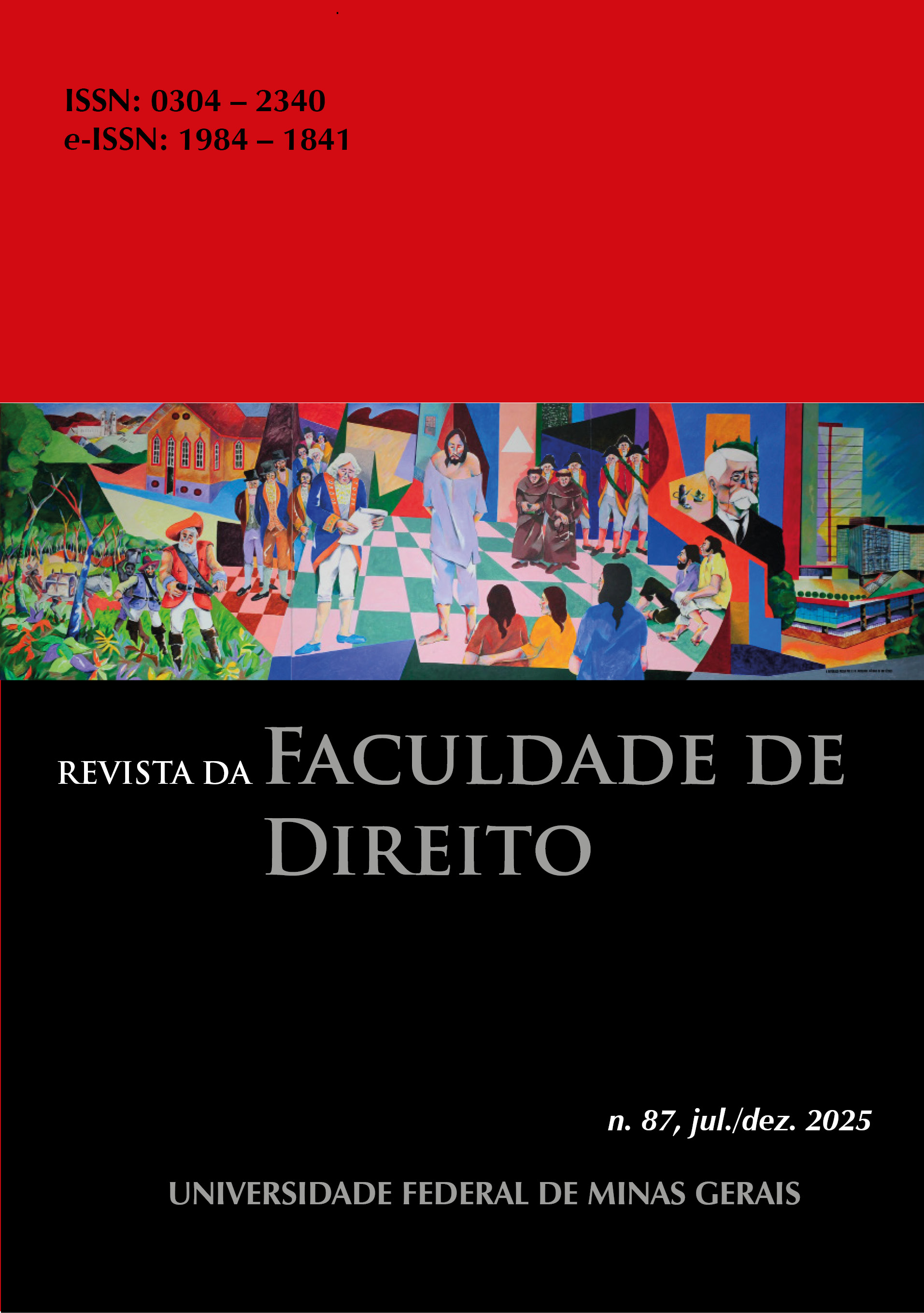ALTERAÇÃO DO EDITAL DE CHAMADA PARA ARTIGOS CIENTÍFICOS DE 2026: VALERÁ PARA EDIÇÃO 88 E 89
2026-02-05
O Conselho Editorial da Revista da Faculdade de Direito da UFMG comunica que a chamada para artigos científicos para o número 88 se estenderá também ao número 89. Assim, os artigos aprovados poderão ser publicados na edição do primeiro semestre de 2026 ou na edição do segundo semestre de 2026.
As demais instruções permanecem válidas.
Para essas edições, serão aceitos artigos de autoria de doutores, bem como de doutores em coautoria com, no máximo, um doutorando.
O edital alterado pode ser acessado aqui.
Saiba mais sobre ALTERAÇÃO DO EDITAL DE CHAMADA PARA ARTIGOS CIENTÍFICOS DE 2026: VALERÁ PARA EDIÇÃO 88 E 89



